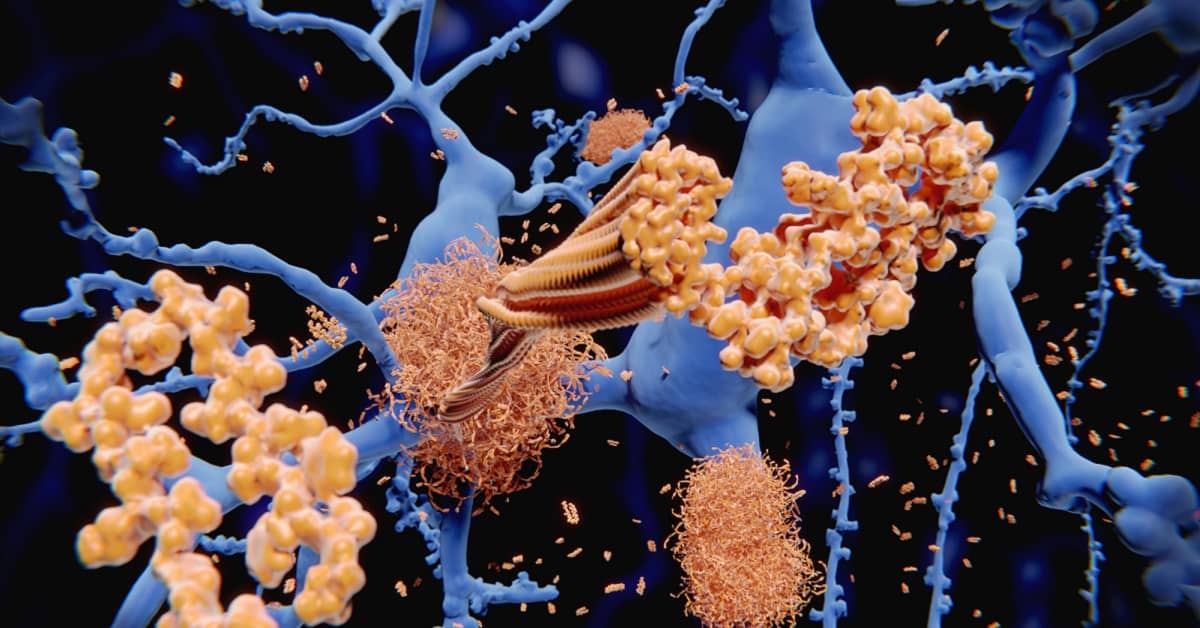
For more than a decade now, researchers have tried to “cure” Alzheimer’s disease by clearing away beta-amyloid plaques and tau proteins with drugs.
But, as we’ve reported repeatedly, clinical trials on these drug therapies have shown that eliminating the proteins does nothing to improve Alzheimer’s-related memory loss. Now, researchers point to a study at the University of Southern California (USC), which may have uncovered why and revealed a new and better way to prevent and even treat Alzheimer’s disease.
Key Takeaways
- Clearing amyloid plaques and tau tangles alone does not reverse memory loss in Alzheimer's.
- New studies reveal that restricted blood flow to the brain, exacerbated by white blood cell blockages, accelerates Alzheimer's progression.
- Increasing blood flow and overall brain health may offer new paths for effective Alzheimer's treatment.
What Happens In Brain Aging
Our brains are like bustling cities, with countless messages zipping along neural highways every second to keep our memories sharp and our thoughts flowing. But just as a city needs well-maintained roads and efficient traffic flow to function, our brains require healthy blood vessels and proper circulation to stay vibrant. Now, groundbreaking research from USC and Cornell is shedding new light on why some aging brains start to falter - and it's not quite what scientists originally thought.
Where Tau Tangles Come From
The study at USC focused on the development of tau tangles, which are snarled threads of protein that choke the life out of brain cells and wipe out memory as Alzheimer’s disease progresses. In normal, healthy brains, the protein called tau binds to and stabilizes microtubules, which guide nutrients and signaling molecules to various parts of neurons. But during Alzheimer’s disease, chemical changes take place that result in tau detaching from the microtubules and allowing segments of tau to stick to each other. These sticky structures form tangles within each neuron that gum up the neuronal transport system.
Amyloid and Tau Don't Act Alone
Many researchers have believed that as Alzheimer’s progresses, beta-amyloid accumulation is the first complication, increasingly clumping between brain cells. Then, at some tipping point, tau tangles form and spread rapidly – collecting in specific brain regions involved in memory. There's also another memory-damaging protein called medin. Little by little, cognitive function fades.
However, when the USC scientists used lab tests to take a closer look at the buildup of tau, they found that the destructive process accelerates and does its worst damage when blood flow to the brain is simultaneously impaired and restricted.
The USC analysis concludes that dealing with beta-amyloid and tau tangles without improving blood flow to the brain is at least one of the reasons that drug trials for treating Alzheimer’s disease have been doomed to failure. So, this begs the question, how do you increase blood flow to the aging brain? A study at Cornell might have begun to uncover a solution…
Fading Brains May be Starved for Blood
The Cornell investigation indicates that one vascular problem during Alzheimer’s occurs when white blood cells stick to the insides of capillaries in the brain, blocking essential blood flow. And although the capillaries are the smallest of blood vessels, the Cornell scientists say that the cumulative effect of each impeded vessel leads to a serious lack of blood supply to brain cells.
"What we've done is identify the cellular mechanism that causes reduced brain blood flow in Alzheimer's disease models, which is neutrophils [white blood cells] sticking in capillaries," says researcher Chris Schaffer.
Dr. Schaffer believes that finding a way to eliminate this white blood cell traffic jam could help with Alzheimer’s treatments.
Of course, it’ll be a while before we know for sure what kind of practical results will come from both the Cornell and the USC studies. Hopefully, researchers will finally stop wasting their time merely trying to banish tau tangles and amyloid beta without trying to improve overall brain health through avenues such as boosting blood flow and supplying the brain with additional nutrients.
How To Increase Blood Flow To Your Brain
Several herbs and nutrients are known to increase blood flow to the brain, supporting cognitive function, memory, and mental clarity. Here are some of the most effective:
-
Ginkgo Biloba: One of the best-known herbs for brain health, ginkgo biloba improves blood flow to the brain by dilating blood vessels and reducing blood viscosity, thus enhancing oxygen delivery to brain cells. It’s widely used for improving memory and cognitive performance, especially in older adults.
-
Bacopa Monnieri: An adaptogenic herb used in Ayurvedic medicine, bacopa helps increase blood flow and supports neuroprotection. It has been shown to enhance memory, reduce anxiety, and improve overall mental performance by facilitating blood flow and promoting antioxidant activity in the brain.
-
Rhodiola Rosea: This adaptogen boosts brain blood flow, particularly in stressful situations, by reducing fatigue and enhancing cognitive function. Rhodiola is beneficial for mental stamina, focus, and reducing brain fog.
-
Omega-3 Fatty Acids (DHA and EPA): Found in fatty fish, flaxseed, and walnuts, omega-3 fatty acids are essential for brain health. DHA, in particular, supports cerebral circulation and has anti-inflammatory properties that protect blood vessels, potentially improving blood flow and cognitive performance.
-
Curcumin: The active compound in turmeric, curcumin enhances blood flow to the brain through its antioxidant and anti-inflammatory effects. Studies show that it may improve memory and reduce neurodegeneration by supporting healthy blood vessels.
-
Beetroot: High in nitrates, beetroot is known to increase nitric oxide levels in the blood, which relaxes and dilates blood vessels, enhancing blood flow. This mechanism supports improved oxygen delivery to the brain, making beetroot beneficial for cognitive function and mental clarity.
-
Panax Ginseng: This herb has been shown to improve brain circulation and reduce mental fatigue. Ginseng’s effects are partly due to its ability to enhance nitric oxide production, which dilates blood vessels and increases cerebral blood flow.
-
Vitamin E: Found in nuts, seeds, and leafy greens, Vitamin E is an antioxidant that protects brain cells from oxidative stress. It also supports healthy blood flow and helps prevent blood clotting, which can enhance brain circulation.
My Takeaway
These studies reinforce the importance of staying heart-healthy to keep your brain healthy. Especially since the number of Alzheimer's diagnoses is growing among younger populations. To lower your risk for Alzheimer’s disease and other cognitive problems, you have to address the well-being of your cardiovascular system.
Summary
For years, Alzheimer's research has focused on clearing beta-amyloid plaques and tau protein tangles, but new studies from the University of Southern California (USC) and Cornell University highlight that poor blood flow to the brain plays a significant role in the disease's progression. By identifying how white blood cells block essential capillaries, scientists now understand that increasing blood flow could be key to slowing Alzheimer’s, providing a fresh approach to treatment beyond amyloid and tau removal.
Frequently Asked Questions
Why haven’t amyloid and tau treatments worked for Alzheimer’s?
These treatments alone don’t address underlying issues like restricted blood flow to the brain, which worsens cognitive decline.
What role does blood flow play in Alzheimer’s?
Restricted blood flow, partly due to white blood cell buildup in capillaries, limits essential nutrients to brain cells, accelerating Alzheimer’s damage.
Can improving blood flow help Alzheimer’s patients?
Researchers believe enhancing blood flow could be a powerful tool in reducing symptoms and slowing Alzheimer’s progression.
How does the tau protein affect the brain in Alzheimer’s?
In Alzheimer’s, tau proteins tangle and disrupt brain cell transport systems, which impedes nutrients and worsens cognitive decline.
What are the potential benefits of focusing on blood flow for Alzheimer’s?
By enhancing blood flow, researchers hope to provide more oxygen and nutrients to the brain, potentially improving memory and cognitive function.
- https://www.nia.nih.gov/health/what-happens-brain-alzheimers- disease#:~:text=Neurofibrillary tangles are abnormal accumulations,tau that collect inside neurons.&text=In Alzheimer's disease%2C however%2C abnormal,to form tangles inside neurons
- https://pubmed.ncbi.nlm.nih.gov/33046556/
- https://pubmed.ncbi.nlm.nih.gov/30742116/
